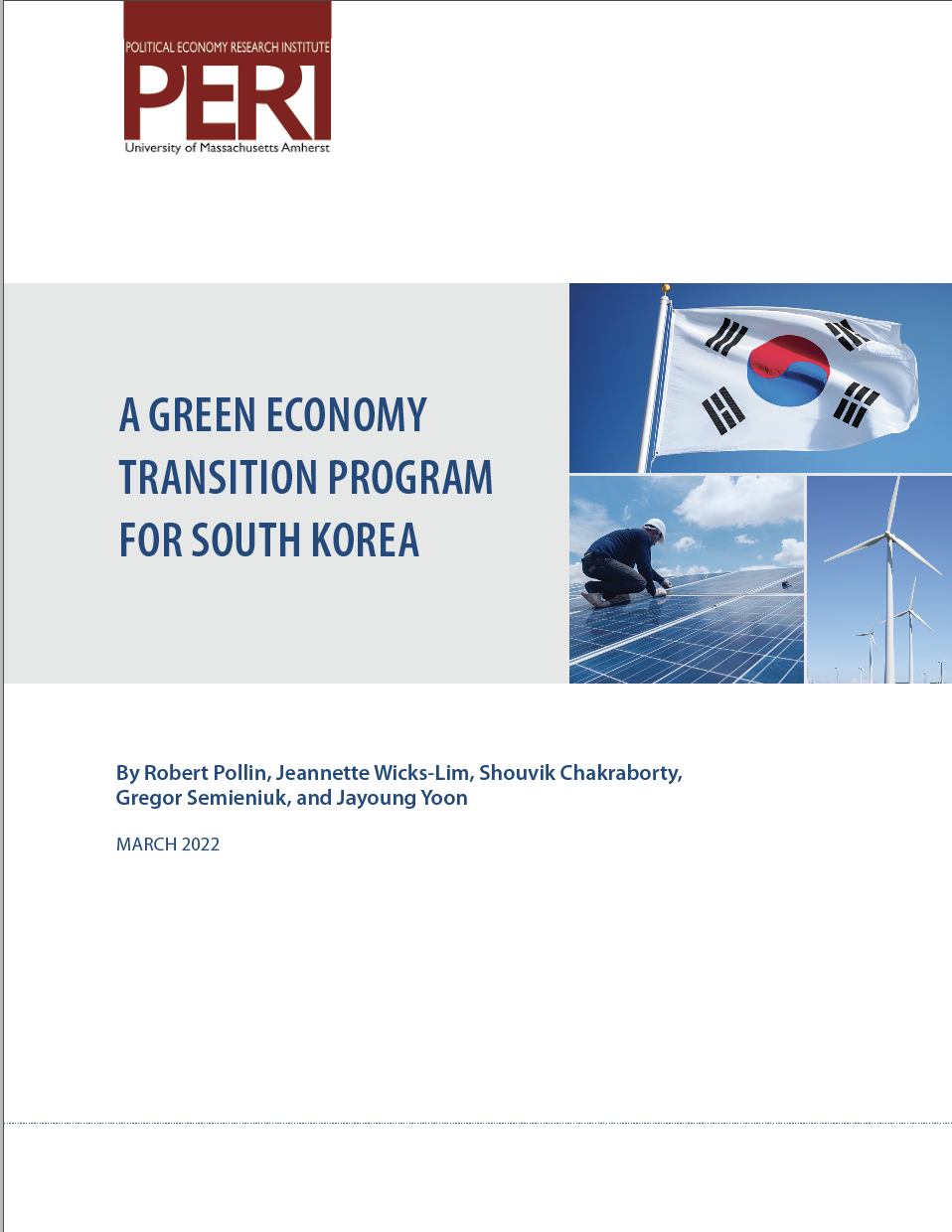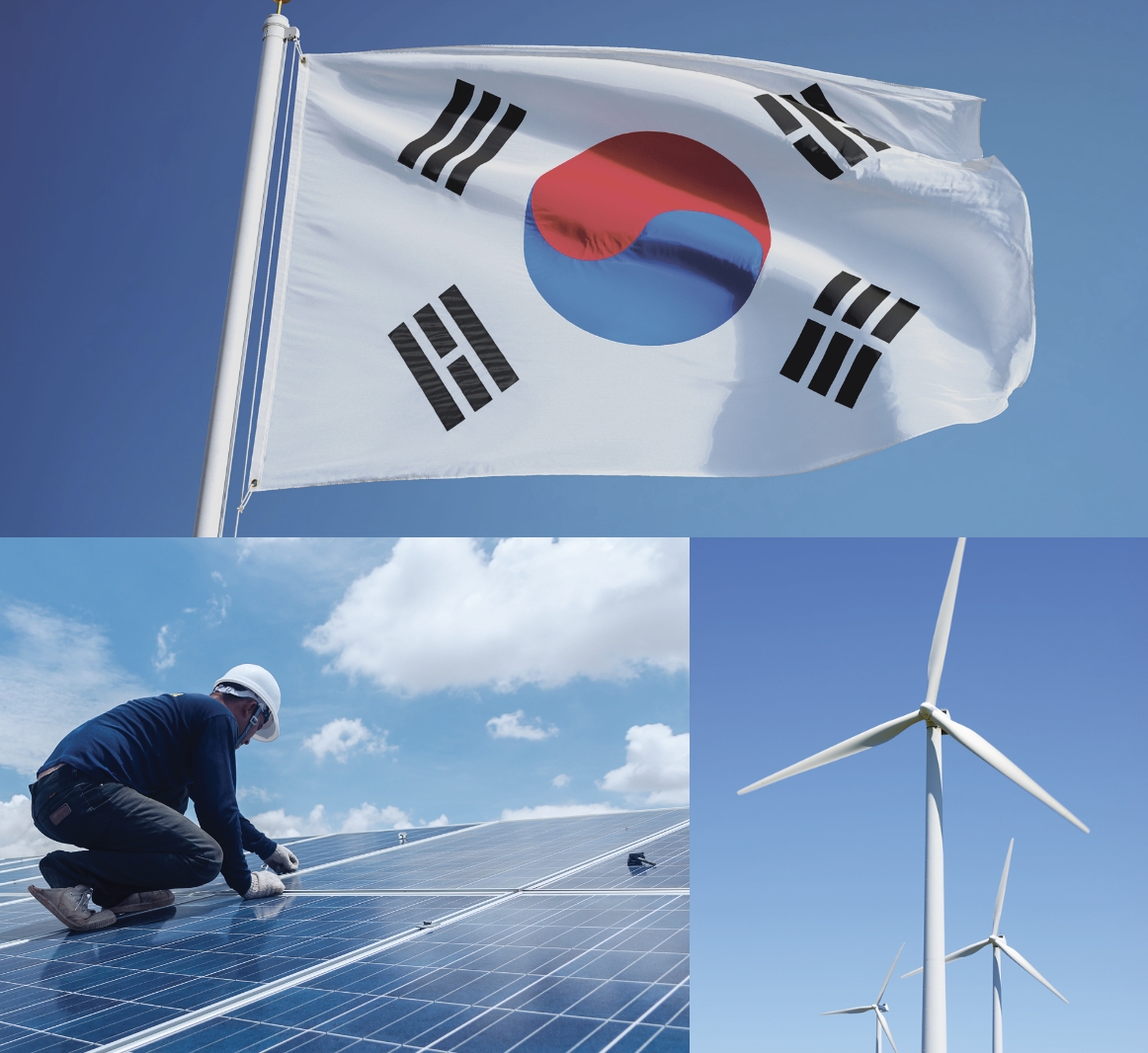>> Link to PERI U.S. states green economy transition programs
 This study outlines a workable climate stabilization framework for South Korea, building from the government’s own Green New Deal program and related research studies. Through this framework, South Korea can achieve the two most important objectives of its Green New Deal program—to reduce the country’s CO2 emissions by more than 40 percent by 2030 and to achieve zero emissions by 2050. Korea can achieve these emissions reduction targets while maintaining a healthy overall economic trajectory and, critically, produce a major expansion in overall employment opportunities.
This study outlines a workable climate stabilization framework for South Korea, building from the government’s own Green New Deal program and related research studies. Through this framework, South Korea can achieve the two most important objectives of its Green New Deal program—to reduce the country’s CO2 emissions by more than 40 percent by 2030 and to achieve zero emissions by 2050. Korea can achieve these emissions reduction targets while maintaining a healthy overall economic trajectory and, critically, produce a major expansion in overall employment opportunities.
This study is divided into six sections:
1. South Korea’s 2050 Carbon-Neutrality Project
2. A Clean Energy Investment Program for 2022–2030
3. Clean Energy Investments, Reforestation, and Job Creation
4. Employment Contraction and Just Transition for Displaced Workers
5. Achieving a Zero Emissions Economy by 2050
6. Financing Requirements for Korea’s Carbon-Neutrality Project
Media
>> New;Tree: "US PERI's diagnosis of Korea's future..."Energy conversion will create 2 million jobs"
>> Herald: Green Transition Lowers Unemployment
>> The JoongAng: Korea's 'green investment' could create 860,000 jobs within 8 years
>> Chosun: U.S. research institute “Korea green investment could create 2 million jobs by 2050"



